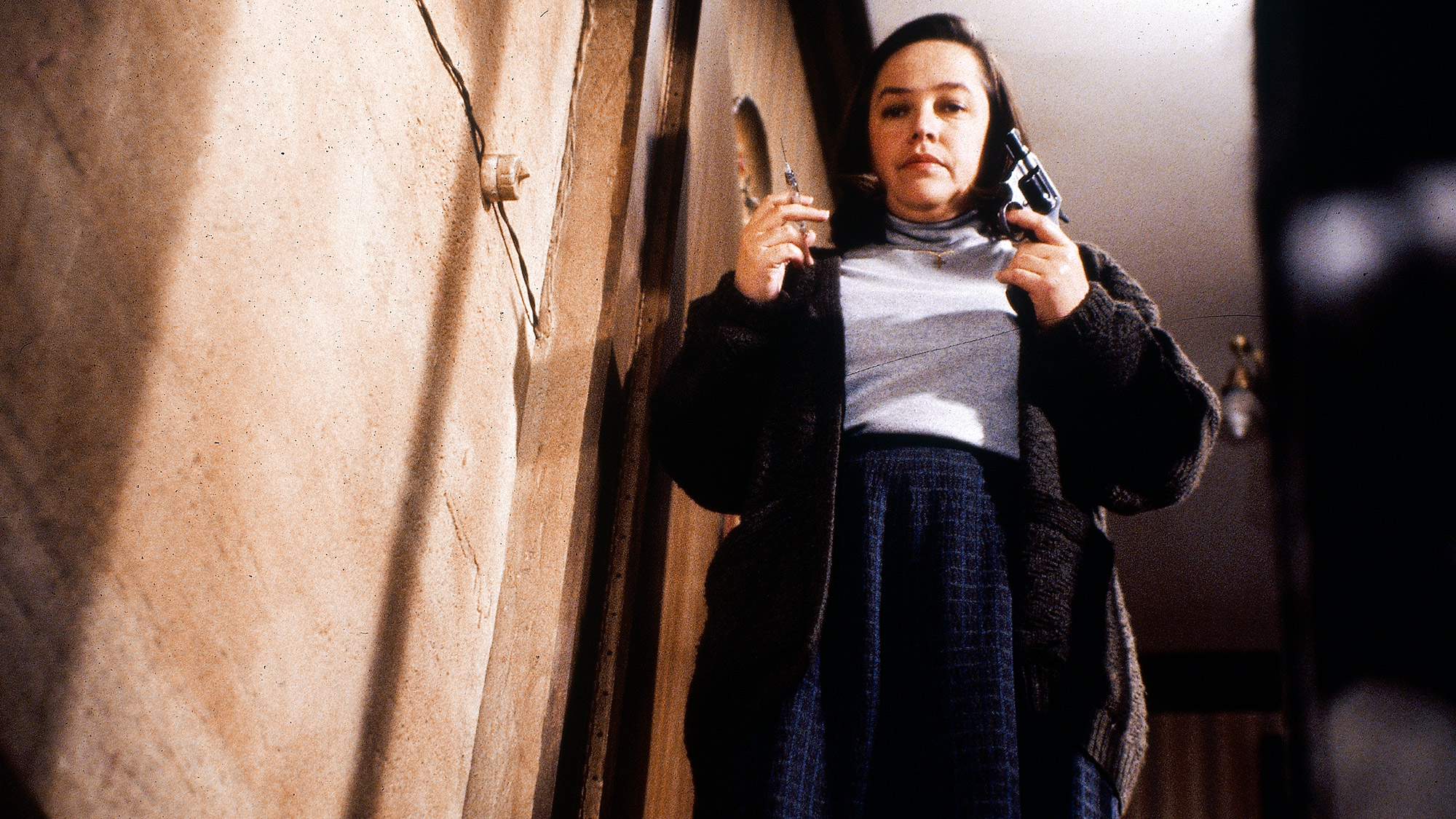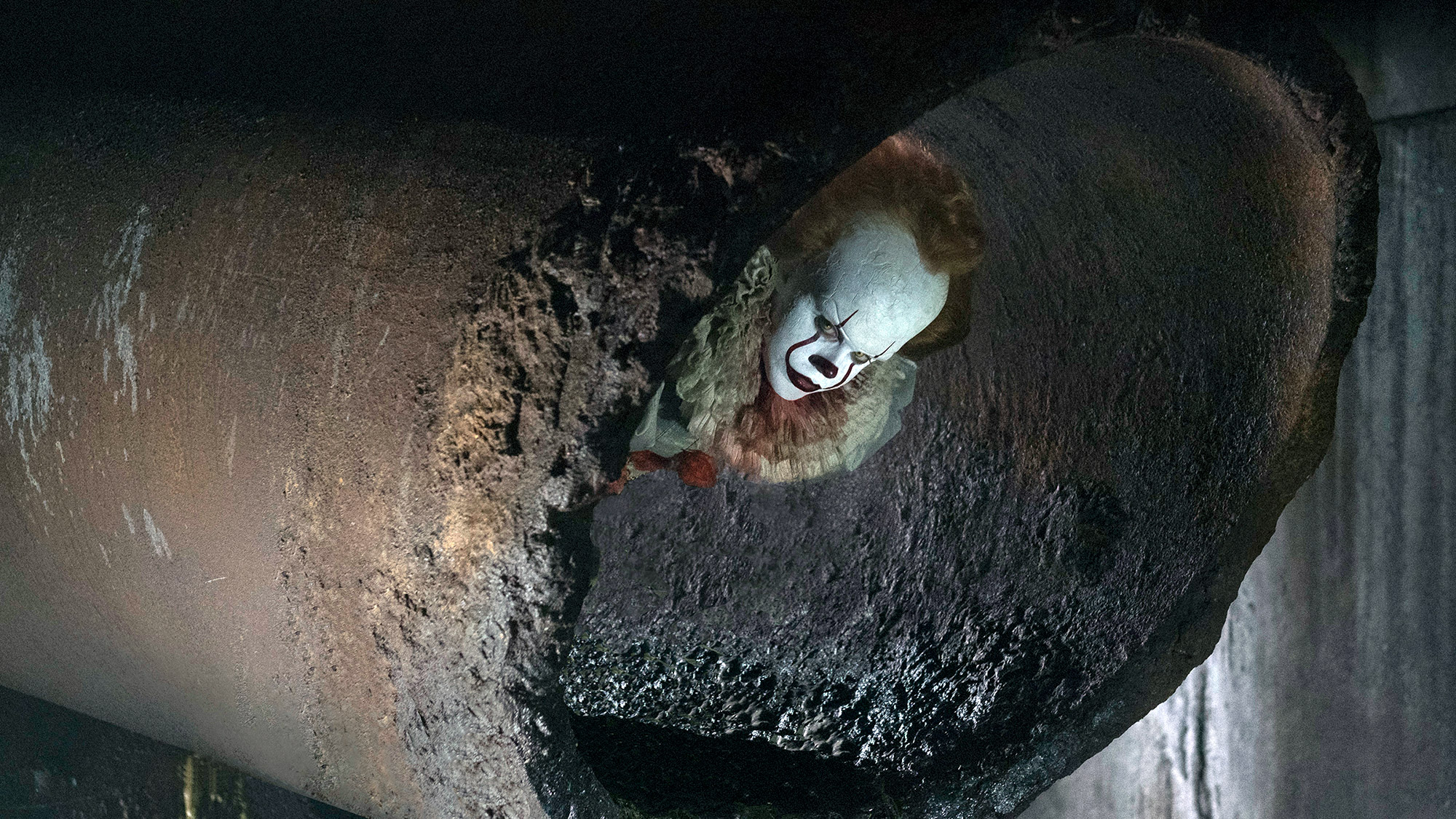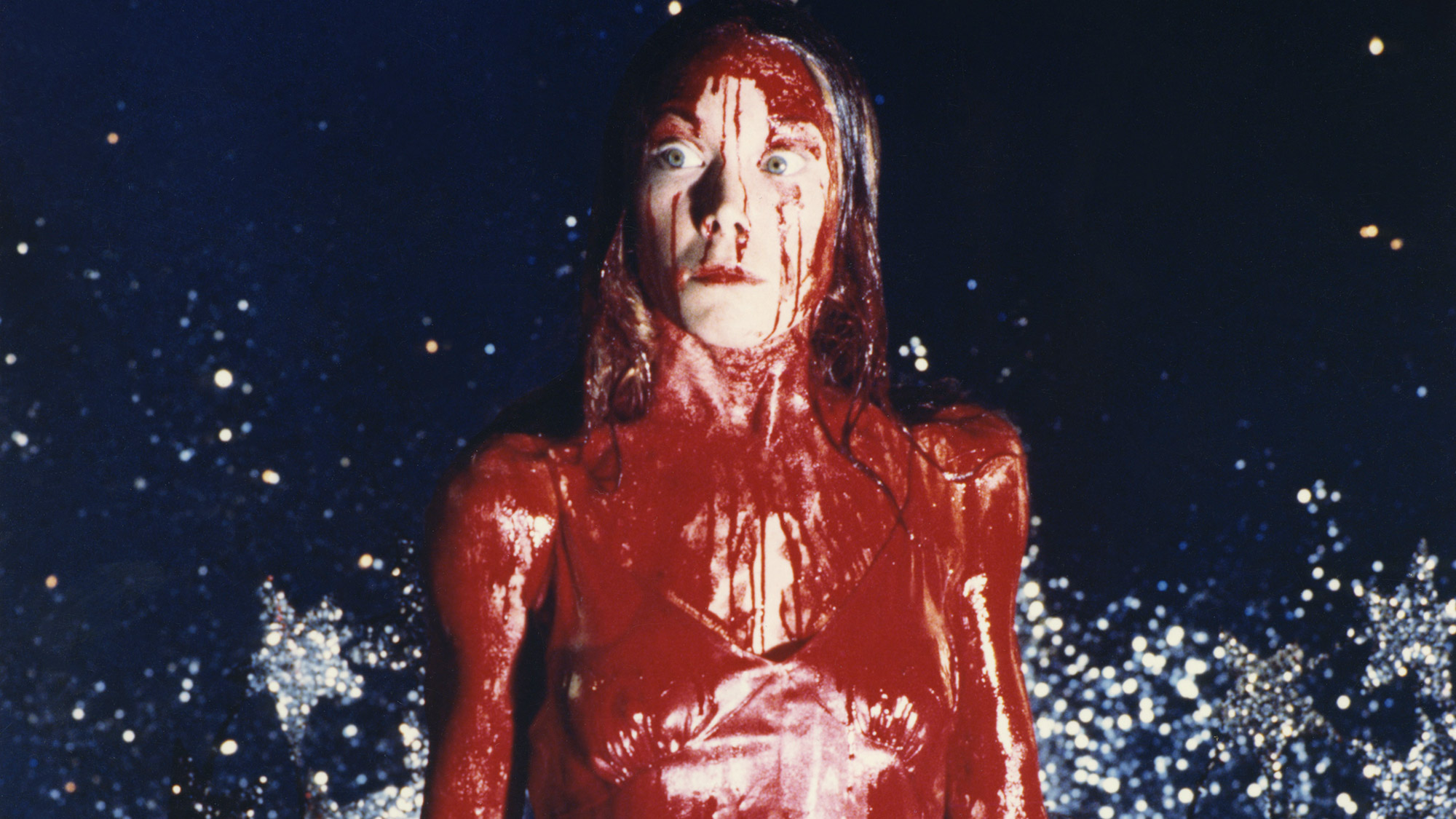The 12 Best Stephen King Movies
Watch the best Stephen King adaptations.

No one knows how to spin a horror yarn like Stephen King, prolific author, proud Mainer and owner of an unbelievably cute corgi. King has written dozens of novels and countless short stories, so it's no surprise that directors from Brian de Palma to Rob Reiner have adapted his work for the big screen. While a lot of King adaptations fall flat (it's hard to translate literary horror to a visual medium), there are a dozen films that are just as chilling, unsettling and/or heartbreaking as the books that inspired them. With the debut of Stranger Things Season 3, which is largely an homage to King's oeuvre, now is the perfect time to enjoy a story from the master of horror.
It (2017)

In the gap between the releases of Stranger Things Season 1 and Season 2, a remake of Stephen King's It reminded the world that the author is king when it comes to kids from broken homes tackling supernatural evil. Arriving after years of frustrated clashes with directors and Warner Bros., which caused directors David Kajganich and Cary Fukunaga to drop out of the project, Andrés Muschietti finally cracked the code to bringing Pennywise to the big screen. The film thrives thanks to its pack of excellent child actors, led by Jaeden Martell playing Bill Denbrough with a relatable fragility, and Sophia Lillis (Sharp Objects) as Beverly Marsh, who instantly comes across as a star. Bill Skarsgård also impressed many viewers with his performance as Pennywise, thanks to uber-creepy voice work and facial mannerisms. This film only tells one half of King's massive novel; It: Chapter 2 is coming on Sept. 6. — Henry T. Casey
The Mist (2007)
The Mist is one of King's creepiest novellas, relying on tension and atmosphere for scariness, rather than monsters and violence. (Although – rest assured – there are plenty of monsters and violence as the story progresses.) Frank Darabont directed a fairly faithful adaptation in 2007, starring Thomas Jane as suburban dad David Drayton, and Nathan Gamble as his son, Billy. When a strange mist descends upon a small town in Maine (where else?), David and Billy hole up with a group of other survivors in a grocery store. As the days wear on and mysterious creatures start to beat at the doors, the townsfolk split into different camps: Some want to stay, some want to go, and some are convinced that the creatures are some sort of inescapable religious apocalypse. While Darabont changed the novella's more ambiguous ending, King himself liked the new spin, and audiences liked the film in general. — Marshall Honorof
1408 (2007)
1408 is not exactly The Shining, but this mind-bending thriller set in a haunted hotel has enough scares to keep you glued to the screen. John Cusack gives an inspired performance as a skeptical author in search of a haunted house on which to base his next novel. Ignoring the advice of Gerald Olin (Samuel L. Jackson), Cusack checks into 1408, a haunted room that has supposedly claimed more than 50 victims. It's not long before the supernatural reveals itself and forces Cusack to face his fears head-on. The thrills will stay with you long after the credits roll, but it's the surprisingly tender moments that elevate 1408 above the many disappointing Steven King adaptations. — Phillip Tracy
The Green Mile (1999)
Stephen King has often been compared to Charles Dickens – a popular writer who captures the spirit of the time better than any number of highfalutin literary types. King himself is a big Dickens admirer, and The Green Mile was King's serial novel experiment in a Dickensian style. Like a lot of good King adaptations, the film follows the book's story almost beat-for-beat. Tom Hanks plays Paul Edgecomb, a Depression-era prison warden who oversees death row inmates before they walk "the green mile" that leads to the electric chair. One such inmate is John Coffey (the late, great Michael Clark Duncan), a huge black man who, despite his protestations of innocence, makes an easy scapegoat for a brutal murder. As it turns out, though, Coffey also has a magical gift to heal people — but it's not guaranteed to save his own life. — Marshall Honorof
The Shawshank Redemption (1994)
The Shawshank Redemption isn't just one of the best Stephen King adaptations; it's one of the best movies ever made, at least according to IMDB. Based on King's novella "Rita Hayworth and Shawshank Redemption," this movie follows Red (Morgan Freeman), a long-term inmate at Shawshank State Prison in Maine. There, he meets up with newcomer Andy Dufresne (Tim Robbins), a mild-mannered accountant who insists, against all evidence, that he is innocent of a murder charge. The film explores the friendship that develops between Red and Andy, as well as how prison changes a person's psyche and expectations over time. One thing that works in Shawshank's favor is that it's almost identical to the short book that inspired it, including every major plot point and streamlining only a few minor characters. — Marshall Honorof
Misery (1990)

The book is always better than the movie, but with Misery, the movie comes pretty close. Kathy Bates has a stellar turn as Annie, the psychotic Number 1 fan of writer Paul Sheldon (James Caan). She looks after him during his convalescence after a car accident, snowbound in a Colorado cabin. When she realizes he’s killed off her favorite character — the eponymous Misery — Annie forces him to bring Misery back to life, literarily-speaking, through means that are sweetly horrifying. — Mike Prospero
The Running Man (1987)
It may seem more like a Philip K. Dick story, but The Running Man’s dystopian look at crime, punishment and entertainment is all King. Ben Richards (Arnold Schwarzenegger) is a police officer framed for a mass murder, and his sentence is set to air on the Running Man TV show, where he must evade a number of stalkers bent on killing him. Made during the middle of Schwarzenegger’s mid-80s run of action movies, this flick is loaded with cartoonish violence and horrible one-liners. The best: “Here's Subzero! Now... plain zero!” — Mike Prospero
Stand By Me (1986)
“You guys wanna see a dead body?” This simple but morbid proposition is too much for four adolescent boys to pass up. Wil Wheaton, River Phoenix, Corey Feldman and Jerry O’Connell star in this coming-of-age story that also features then-up-and-coming actors such as Kiefer Sutherland and John Cusack. While the premise is ghastly, the movie will leave many men in the midst of their midlife crises wistful for days of childhood idyll. — Mike Prospero
Firestarter (1984)
Firestarter is a bit of a mess, I can’t lie. But what’s not to love about tiny Drew Barrymore starring as a pyrokinetic badass who can conjure fireballs out of thin air? This is a classic, if not exactly amazing, Stephen King story brought to life. Barrymore, fresh off her turn as the lovable Gertie in E.T., stars as Charlie, whose parents subjected themselves to government-run science experiments while in college and gained special powers as a result. Charlie’s abilities are more powerful than her parents’ are: She can start fires with her mind. The government agents who track down her family and try to abduct Charlie eventually come to rue the day they pissed off a firestarter. — Caitlin McGarry
The Dead Zone (1983)
After waking up from a five-year coma, Johnny Smith (Christopher Walken) realizes he’s gained the ability to peer into other peoples’ futures when he touches them. But what initially seems like a gift turns out to be something else when he comes in contact with presidential candidate Greg Stillson (Martin Sheen) and the politician's grim destiny. Walken is on the top of his creepy game, and Sheen is the polar opposite of his other presidential role on The West Wing.— Mike Prospero
The Shining (1980)
The Shining is as much a Stanley Kubrick film as it is an adaptation of Stephen King's classic, and the movie strips away some of the Torrances' backstory along the way. The result is an amazingly well-paced film that's commonly seen as a master class in horror. While Jack Nicholson's iconic performance grounds the film in emotional stress, the movie also stands out thanks to a mix of visual thrills and memorable shots. While today's audiences might not feel surprised by the shot that follows young Danny as he drives his big wheel around the haunted Overlook Hotel, it was practically revolutionary at the time, as it used the then-novel Steadicam. — Henry T. Casey

Just as Carrie, the novel, launched Stephen King's writing career, Carrie the movie helped director Brian de Palma hit the big leagues. This film doesn't hew as closely to the book as some other King adaptations, but the core of the story is still there. Carrie White (Sissy Spacek) is a gawky, unpopular teenage girl who mysteriously develops telekinetic powers when she gets her first period. Carrie's overbearing, religious fundamentalist mother Margaret (Piper Laurie) is sure that Carrie's powers are a sign of the devil, which only makes matters worse. Carrie's newfound powers also don't shield her from the cruelties of her fellow classmates, which culminate in a horrifying prank at her prom. Carrie works as both a horror film and a teenage drama, even if the ending is a little different from the book. — Marshall Honorof
Sign up to get the BEST of Tom's Guide direct to your inbox.
Get instant access to breaking news, the hottest reviews, great deals and helpful tips.
Marshall Honorof is a senior editor for Tom's Guide, overseeing the site's coverage of gaming hardware and software. He comes from a science writing background, having studied paleomammalogy, biological anthropology, and the history of science and technology. After hours, you can find him practicing taekwondo or doing deep dives on classic sci-fi.
